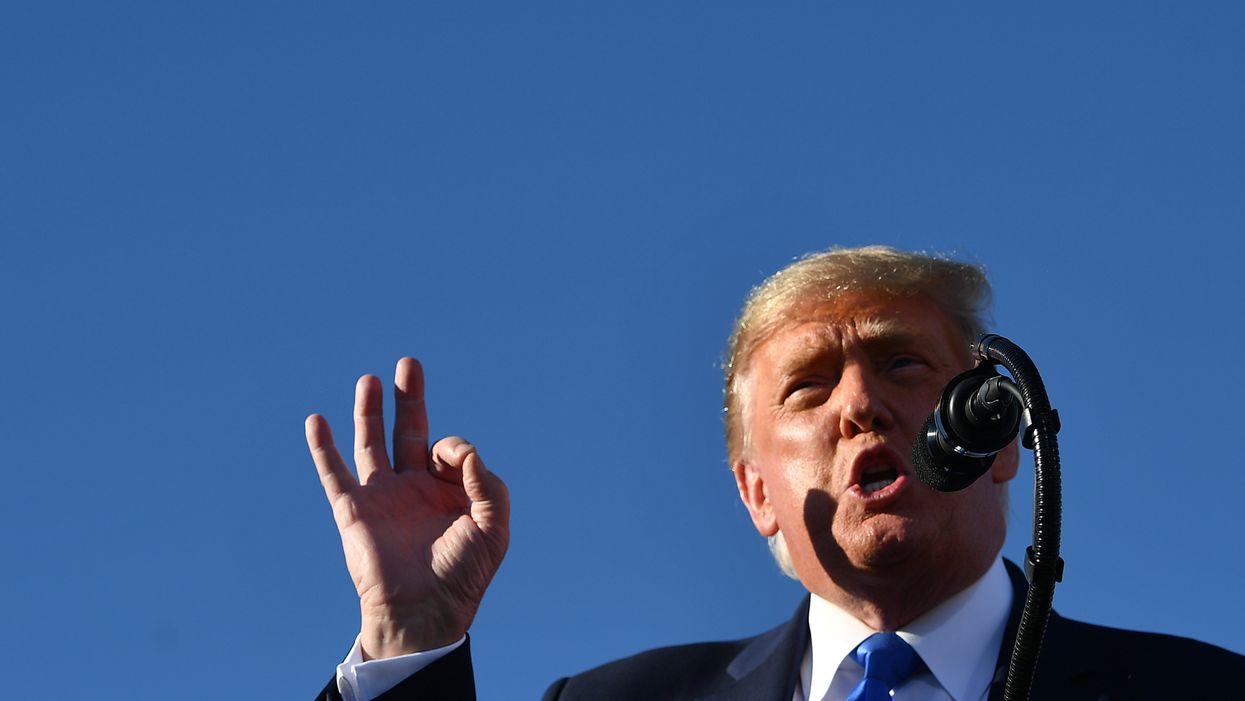Stalemate continues in Congress over how to next mitigate the lingering economic pain inflicted by the coronavirus shutdown. Nearly all House members and senators publicly agree on the need to provide assistance to those impacted by this economic crisis. Yet, despite almost six months of discussion, legislation remains elusive.
President Trump has identified similar concerns and repeatedly expressed support for additional aid. And because of the lack of congressional action, he has aggressively explored an array of possible executive actions linked to existing statutory authority.
Much of this authority granted by Congress is either expansive or vaguely defined. Since our nation's founding, presidents have tested its outer limits. In response, Congress has often shirked its constitutional mandate to check the president from exceeding these limits. In addition, over the decades Congress has proactively ceded large swaths of its responsibilities to the executive branch. As a result, the executive branch wields power unimagined by the Founders.
Recent executive orders on payroll tax deferments, unemployment compensation and eviction moratoriums highlight the importance of restoring the balance of power envisioned by our founders. Our Constitution gives Congress the ultimate power to levy taxes, allocate spending and create law. The executive branch, headed by the president, bears the responsibility of faithfully executing those laws.
Earlier this year, Congress granted businesses leeway to defer until the end of 2022 the employer portion of the Social Security tax owed on the remainder of this year's wages. However, Congress chose not to defer the taxes for the employee portion. So Trump issued an executive order suspending collection of the employee portion for the rest of the year.
Regardless of desired economic outcome, the president lacks clear statutory authority to suspend collection of the tax in this manner.
Furthermore, most businesses are hesitant to transmit deferred taxes to employees. After all, employers still must remit these taxes, albeit at a delayed date. When the IRS bill comes due, they will be forced to withhold these deferred taxes from the paychecks of their workers.
The attempt to alter tax policy through executive order has frustrated the administration's desire to provide workers with a boost in take-home pay during the economic uncertainty.
Next, consider the state of federal unemployment benefits. The end of July marked the expiration of a weekly boost of $600 that had been provided since March under the last recovery package, known as the CARES Act. Ever since, Congress has failed to enact additional aid to the more than 11 million made jobless during the pandemic.
To lessen the blow, Trump issued an executive order directing that as much as $44 billion in the disaster aid reserves of the Federal Emergency Management Agency be used to provide $300 weekly in benefits (matched with $100 state payments) to anyone eligible for jobless insurance under the CARES Act. These funds were depleted in less than two months.
The president only embarked on this novel approach following Congress's failure to find a legislative solution. Unfortunately, the executive order sets a precedent of unilaterally declaring a federal emergency and then using that emergency to redirect appropriations.
Trump's third big move was on eviction moratoriums. He issued an executive order protecting all residents of rental properties until the end of the year. This order was predicated on the Public Health Services Act , which authorizes regulations "necessary to prevent the introduction, transmission or spread of communicable diseases from foreign countries into the states or possessions, or from one state or possession into any other." Examples listed in the law include "inspection, fumigation, disinfection, sanitation, pest extermination, destruction of animals or articles found to be so infected or contaminated as to be sources of dangerous infection to human beings, and other measures."
So what legal rationale links an eviction moratorium to this authority? The clearest connection seems to be this part of the order: "Eviction moratoria — like quarantine, isolation, and social distancing — can be an effective public health measure utilized to prevent the spread of communicable disease."
But is a ban on evictions related to preventing the international or interstate spread of communicable diseases? Here are the facts: Total relocations in a typical year far exceed the number of evictions experienced even in the depths of the Great Recession at the end of the last decade. Then, the number of evictions failed to top 1 million households annually — or fewer than 2.5 million individuals. In contrast, more than 30 million Americans moved from one location to another last year in a healthy economy.
A blanket moratorium that fails to target a tenant's underlying health condition or coronavirus symptoms strays far from the express intent of the law Trump cited. Even the order itself hints the ban is meant as an economic relief measure, not a tool to protect the public from the spread of disease. For instance, the moratorium excludes people not in poverty or otherwise able to pay their rent.
In the midst of the current economic storm, the president's desire to help revive the economy and give relief to Americans who continue to suffer is understandable. And given the lack of action by a dysfunctional and politically divided Congress, it's understandable Trump is pursuing alternative approaches to alleviate the economic pain.
But our system of government, including enumerated powers and separation of powers, requires each branch to stay in its assigned lane. Creating economic policy through executive order threatens a further encroachment of the executive branch upon the legislative branch.
Reversing this long-term trend requires Congress to reassert its responsibility to legislate — and for the executive branch to once again focus on executing the law as written.



















Trump & Hegseth gave Mark Kelly a huge 2028 gift